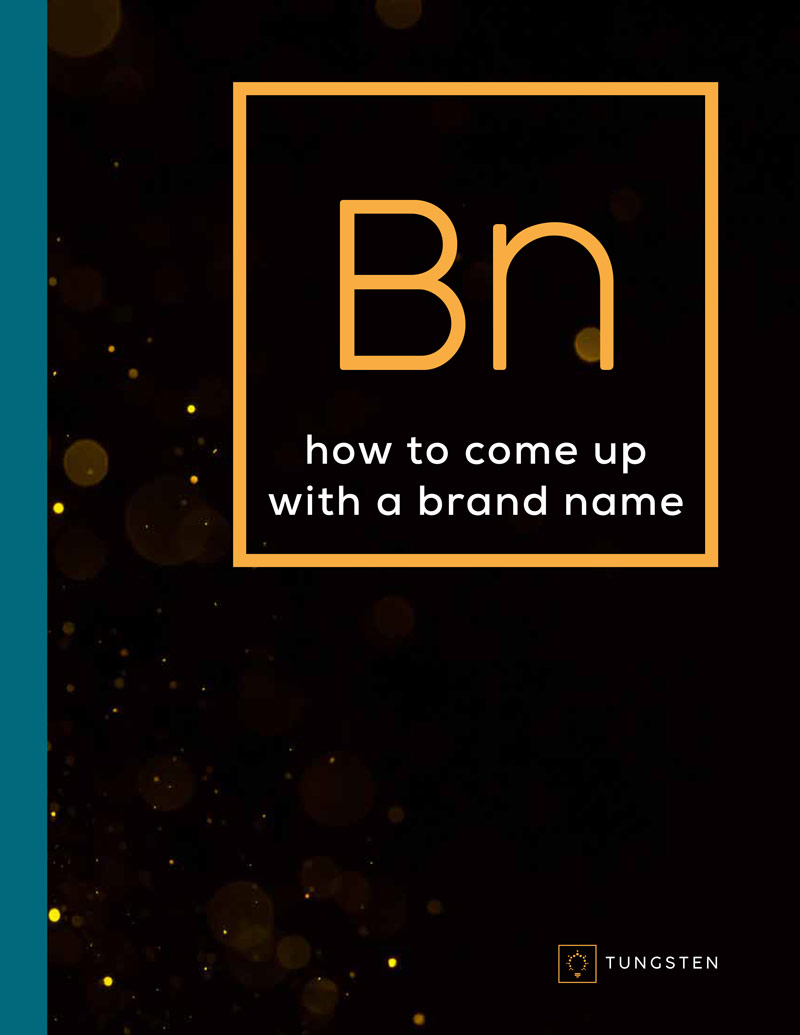Looking to create a new company name? Ask yourself these four important branding questions before creating your new business identity.
With the all the bumps in the economy the past few years, many experienced mid and upper level professionals are striking out on their own, leveraging their expertise to build their own future and control their own destiny. For many of aspiring entrepreneurs, creating a compelling brand name is new territory, a complete and utter mystery. They know it’s an important part of the equation, and they may have even had a full time marketing department at their previous firm. But now it’s “do-it-yourself-time,” and there’s a dearth of information on how to brand a new consulting company successfully. Fear no more!
The first step in branding a consulting company is to know your objectives. Here are four key questions to clarify your goals…
Do you want your company name to stand out, or fit in?
This may seem like a trick question, but there is not a right or wrong answer. Some new consultants are primarily concerned with gaining acceptance in their industry, so they would rather start with a name that sounds established and credible, right from the outset. If that’s the case, try looking up a list of others in your industry on sites such as dmoz.org. You will then gain a sense of the nomenclature used in your field. You may be able to emulate the feel, much like other industries have done (i.e. Microsoft’s Outlook, Apple’s Safari, Netscape’s Navigator, etc.)
If want to gain notice, then do just the opposite of others in your industry! Look at the company names in your field and use interruptive naming strategies. For example, if nearly everyone in your category uses proper names (sometimes known as “legacy” names) then go with a metaphor (i.e. Jaguar, Caterpillar, Amazon, Monster, etc.) to convey your company’s attributes. Or try positive connotation words to create an entirely new identity (i.e. RedHat, OnStar, FireDog, etc.). Just make sure you have a rationale that can explain why you chose that name, and one that leads to a deeper dialog about your company.
Have you explored all the possibilities?
Frequently, new business owners become frustrated and discouraged when naming their new businesses, simply because they’ve attempted only one or two naming strategies. Many times they’ve created a list of literal/functional names (i.e. Custom Software Consulting), only to find the domain names are gone. Or they’ve attempted some obvious metaphors (i.e. Summit, Pinnacle, etc.) and found dozens of companies with similar names. The trick is to employ several methods. These include…
• Key attributes — For example, we named one staffing company BrightHire.com based on their desire to attract the most intelligent candidates. You can see this employed with company names such as SirSpeedy, EconoLodge, Priceline and Smart Cuts. Is there an overarching benefit you provide that you can incorporate into your name?
• Invented names — This is a favorite with consultants but proceed with caution. It’s easy to get caught up in with the chase of a new name and gradually twist the spelling and message until it’s unintelligible. It’s okay to use Latin word parts and obscure references, but only if the name can still be spoken and spelled easily. Small firms have the advantage of conveying part of the brand message in person, over the phone, or at a trade conference. But don’t push it. If you find yourself having to constantly spell or correct the spelling, then it’s a miss. And keep in mind the name can be invented and still carry a sense of meaning. We named one company Claricent, because they were able to provide clear insight and direction to their client base. So you can still convey an attribute, even in an invented name. (i.e Verizon = Horizon, Agilent =Agile, etc.)
• Descriptive Hybrid Names — These names combine an industry descriptor word and marry it with an evocative word. Examples include companies such as Emisstar, consultants in the emissions control industry. Big brand examples include JetBlue and CarMax. If you use this approach, just be sure that your industry descriptor is one that won’t change over time.
• Metaphors — Since the proverbial “picture paints a thousand words,” then metaphors are a great way to convey multiple company attributes with a single image. FourBridges Capital, for example, expresses this investment banking firm’s ability to “bridge the gap” and “connect business with capital,” etc. With four major partners and four major bridges in Chattanooga, TN, the story gains even more traction.
Have you prioritized your wants?
Starting a new consultancy provides a beautiful blank page upon which to craft your story. Take time to determine what is most important in that story.
• Do you want a name that’s memorable?
• Do you want a name that’s easy to say and spell?
• Are you most concerned with trademark?
• Are you adamant about having the exact matching .com domain name?
Figure out the key driver(s) behind your naming challenge, so that when you come down to a final list, you can look back and pick the one that meets your top criteria. Often the process can get foggy and unfocused after a prolonged search for a name, and all the words start sounding alike. So be sure you know what you want before you begin. That way it will help you when it’s 3 a.m., your eyes start to cross, and your spouse no longer wants to be your sounding board.
Are you seeing the big picture?
Create a short list of your favorite names, and then test them out. Make sure you choose people who are either in your potential market, or who understand good branding. Rather than randomly tossing names around, create some context for each name, so that when the name is said, it falls into place. You may even want to invest in some quick logo treatments to help visualize the brand. Many major brand names would ring hallow if only spoken. Judge the whole package… name, rough tagline, sketch of logo, to get the real feel. A consulting name such as BearingPoint gains traction once it has a logo, tag line, and a story line.
Decide if you want to fit in or stand out, utilize multiple naming strategies, prioritize your “wants” list, test your ideas, and you’ll be well on your way to a great consulting company brand name. Once you make your selection, be sure to run it by your trademark attorney and to acquire the matching, or closely matching .com domain name. Continue to integrate your brand message throughout your website, corporate identity, collateral materials and advertising to further strengthen your presence. If done properly, you will have a company name that serves you well, both now and for years to come.
About the author: With over twenty five years of company naming and branding expertise, Tungsten founder Phil Davis is a marketing and advertising veteran, having personally named over 250 companies, products and services worldwide. As a sought after branding expert, Phil has been quoted in The Wall Street Journal, Inc.com, Businessweek, Entrepreneur, and Newsday.
BY Phil Davis
Brand Naming Expert
With over twenty-five years of company naming and branding expertise, Tungsten founder Phil Davis is a marketing and advertising veteran, having personally named over 250 companies, products and services worldwide. As a sought-after naming expert, Phil has been quoted in The Wall Street Journal, Inc.com, Businessweek, Entrepreneur, and Newsday.




